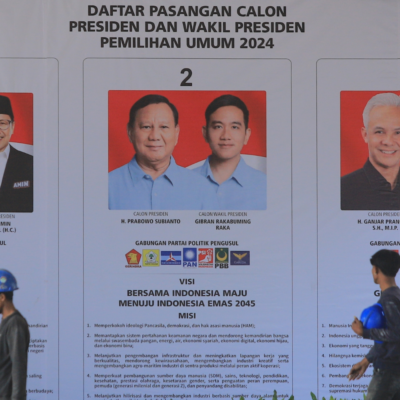
In October 2022, at the 20th Communist Party Congress, China’s President Xi Jinping cemented his power to win a third term of leadership and become the most powerful leader since Mao Zedong. To understand the Chinese Communist Party (CCP), its political organisation, and how it has maintained its grip on power, China historian John Fitzgerald’s 2022 book Cadre Country is a great place to start.
As Fitzgerald writes, Cadre Country is ‘about the party and government officials who run the country, known as cadres, and about the system of cadre rule that grants them status and privileges not enjoyed by ordinary people’. CCP members are essentially ‘employees holding established positions in the party and state system, on full benefits.’
Fitzgerald’s core argument is that it is this cadre system that underpins social, political, and civic inequality in China, in which ‘outsiders’, or non-cadres, are not able to enjoy the benefits of China’s economic growth, influence its political decision-making, and are vulnerable to state power. Fitzgerald explains how this system of exclusion is responsible for disastrous consequences. He draws particular attention to the lack of political freedoms, how the refusal to allow open criticism contributed to the disaster of the 2008 Sichuan Earthquake, and persistent and deepening economic inequality.
Fitzgerald primarily examines China from 2008 onwards in the post-Global Financial Crisis era, which has seen rapid economic growth in China. Fitzgerald notes that while ideology was the central guiding objective during Mao’s rule, during the Reform and Opening Up Period from the late-1970s onwards, economic modernisation preoccupied the party. In 2012, Xi came to power heralding a new era in which he has sought to re-emphasise ideology as a core guiding value for the CCP and the PRC more broadly.
Fitzgerald aims to bring an up-to-date account into the public sphere regarding the on-the-ground realities of China and the CCP’s rule, in comparison to work that often stays within insular academic and elite debates. This work forms part of Fitzgerald’s ongoing criticism of the pragmatic approach that Australian elites have taken in promoting deep engagement with China to develop economic opportunities while ignoring the more authoritarian, nationalistic, and ideological path of Xi’s China.
Fundamentally, Cadre Country seeks to scrutinise the CCP, its political organisation, and its key claims, including the centrality of the Party to China’s political stability, culture, economic growth, and that foreigners wary of China are ignorant or prejudiced. For example, he rejects the claim of the CCP and its advocates that the alleviation of poverty since the 1980s is due to the CCP’s reforms. Rather, he makes the case that it was due to the CCP finally loosening its grip over the Chinese people. The Party justifies its rule by emphasising how its leaders are selected on merit (and are thus responsible for economic expertise) rather than by democratic election (which the CCP sees as dangerous). Fitzgerald critiques this narrative as simply a way for the Party to entrench its system of political exclusion.
In addition, Fitzgerald scrutinises the Party’s key claim that it achieves goals because of its long-term planning, for example in infrastructure, compared to democratic short-termism. But, as the book observes, long-term planning removes the autonomy of individuals, families, and private firms. Fitzgerald cites the violations of individual autonomy during the One Child Policy (1980-2016) to illustrate his claim. He is surely right. Yet what is interesting is that Western governments increasingly perceive that long-term planning has enabled China to develop economically. For example, leaders in the United States and European Union have recently announced plans related to technology development to compete with China.
Fitzgerald argues that a lack of expertise in the West, on the CCP and its version of communism, has led to Western elites pursuing rapid engagement with China for economic gain without recognising the political, security, and strategic risks. He acknowledges that Australia specifically has a great deal of expertise in these matters. However, the main issue has been that scholars critical of engagement, and those with lived experience living under communist rule, including those who left China or did not return after the 1989 Tiananmen Square massacre, were ignored and lacked influence in comparison to business groups and political elites.
Cadre Country is part of extensive literature, research, and reporting on the security, political, and human rights risks of deepening engagement. Under this influence a necessary recalibration has taken place in recent years toward a greater awareness of the risks of CCP subterfuge, driven by concerns over CCP influence.
An issue with much reporting and literature on the risks of China engagement, which includes Cadre Country, is that it risks downplaying how Australia has benefitted from China engagement and people-to-people links. China remains Australia’s largest trading partner and scientific collaboration continues to produce positive benefits. While the Wuhan Laboratory remains the source of controversy, scientific cooperation has produced mutual benefits. For example, in January 2020, University of Sydney Professor Edward Holmes worked with Fudan University Professor, Zhang Yongzhen, who held the genomic information, to tweet the genome of SARS-CoV-2, which made it available to the world and allowed for the rapid development of COVID-19 testing and vaccines. The challenge for Australia is how to mitigate the risks while maintaining the benefits of open engagement.
Cadre Country highlights the serious implications of the Party’s rule in China since 1949 based on the cadre system of exclusion while inducting the mendacity of the Party’s narratives. So how then does the Party maintain its rule when millions of Chinese, including international students, have extensive periods of time living abroad and being exposed to democratic systems? Fitzgerald explains the importance of repression, control, nationalism, and ideological education, but the book lacks emphasis on why it holds onto rule in the face of so much injustice and, during COVID-19, incompetence.
Essentially, the Party has been able to justify itself as the key driver of prosperity, improved social service delivery, and stability. This framing has resonated with enough Chinese ‘outsiders’, who have seen improvements in their quality of life compared to previous generations. Such ‘lived experience’ helps to justify the Party’s claim that change now is too risky. However, China’s poor economic growth in 2022, in part because of the CCP’s approach to COVID-19, may pose a significant challenge to Xi’s legitimacy.
Cadre Country is an important contribution to understanding the modern day CCP by unpacking its key claims, especially in the context of Australia’s ongoing debate of how to best engage with China. It is a rich resource for a wide audience, although it will have more limited value for experts on China more broadly.
Main image: Pro CCP poster in Chinese village. Credit: Harald Groven/Flickr.
Image of book cover used with permission from the publisher.




